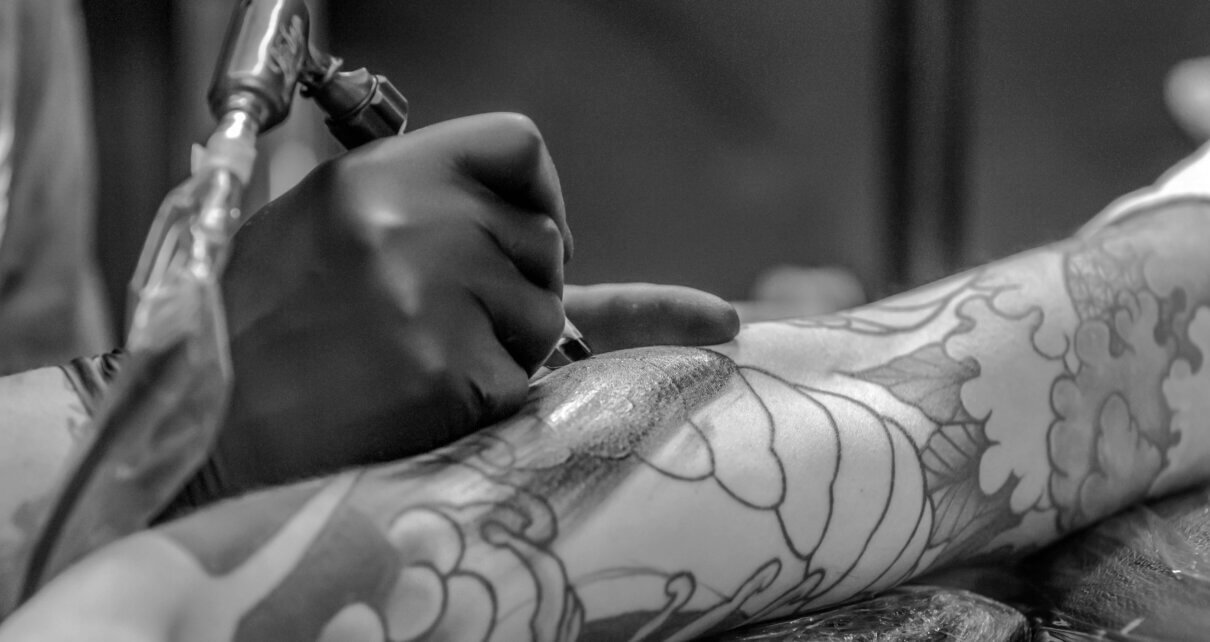It seems like tattoos are becoming more and more popular these days, even becoming part of the mainstream American culture.
Back a decade ago, tattoos were still seen as taboo. People that had tattoos were looked down upon and their life choices were under a microscope by society.
Lauren Bevacqua, a junior English student, said, “[Since] tattoos are so common, society’s views have changed.” Now that it has become more accepting, it seems like tattoos are everywhere.
Tattoos are a form of artwork; the body is the canvas, and the ink is the art. It’s a way for people to express themselves. Ceciliah Leininger, a junior biology student, said, “It’s really cool to hear the story behind a tattoo, whether it’s something personal and has a special meaning or if it is just something completely random.”
Two people could have the same exact tattoo, but it could have a different meaning behind it. Even though Maya Malizia, a sophomore English student, has her tattoos hidden, she loves to view other peoples’ tattoos. “They tell a story,” Malizia said.
Despite people seeing tattoos as a beautiful piece of artwork, tattoos are still not generally accepted in the workplace. Brianna DeLuca, a sophomore elementary education student, said, “If you’re a lawyer, it can be considered unprofessional, whereas if you’re a social worker, they are [generally] okay to show.”
When I worked at a healthcare office for a few months, my employer told me I had to cover up my tattoos. She claimed they were unprofessional and did not want them to reflect on the business.
I could understand her reasoning of not wanting them to reflect on the business, but none of my tattoos are offensive. I covered them up anyway. I wore long sleeves under my scrubs.
One of the many reasons I left that particular medical office was because I had to wear long sleeves every day and was not allowed to roll them up if I got warm. When I worked at a child daycare center, I didn’t have to cover up my tattoos. Children would come up to me and ask me about my tattoos. They were intrigued by them.
Same thing when I worked at a library; the children loved them. I currently work at a pet store and customers compliment my tattoos all the time.
Are tattoos really that big of a deal in the workforce? I asked my English Literature Studies class if they thought tattoos should be covered up in the workforce. One student said, “I don’t think people should cover their tattoos, as it doesn’t determine how well someone do their jobs.” Another student agreed, “They do not determine your intelligence or ability to perform in the workplace; that is on the individual.”
Kia Womack, a sophomore English student, disagreed, “In a professional workplace, I definitely think you should be more mindful because you do want to leave a good impression to others.”
Christina Rodriquez, a junior English student, added, “It should be up to the business owner.”
Another student stated that tattoos shouldn’t be covered up “unless they convey inappropriate images or phrases.”
I asked my classmates if they had any tattoos. Seven of them do not have tattoos, but four of them want a tattoo in the future. Seven of my classmates currently have tattoos, including myself; one of them only has one tattoo and five of them have two or more. I had one person completely against tattoos.
I believe tattoos should only be covered up in the workplace if they are inappropriate, contain nudity, or use of strong language. It all depends on the workplace’s professionalism and the views of the boss.
Since tattoos are more common nowadays, I feel it would be ridiculous to have them covered without reason. Tattoos could be considered a conversation starter and depending on the field of work, conversation could be very important when making a sale or connecting with a client.
As more years go by, I am hoping tattoos in the workplace could be accepted under all professions and the stereotype they hold will vanish.



